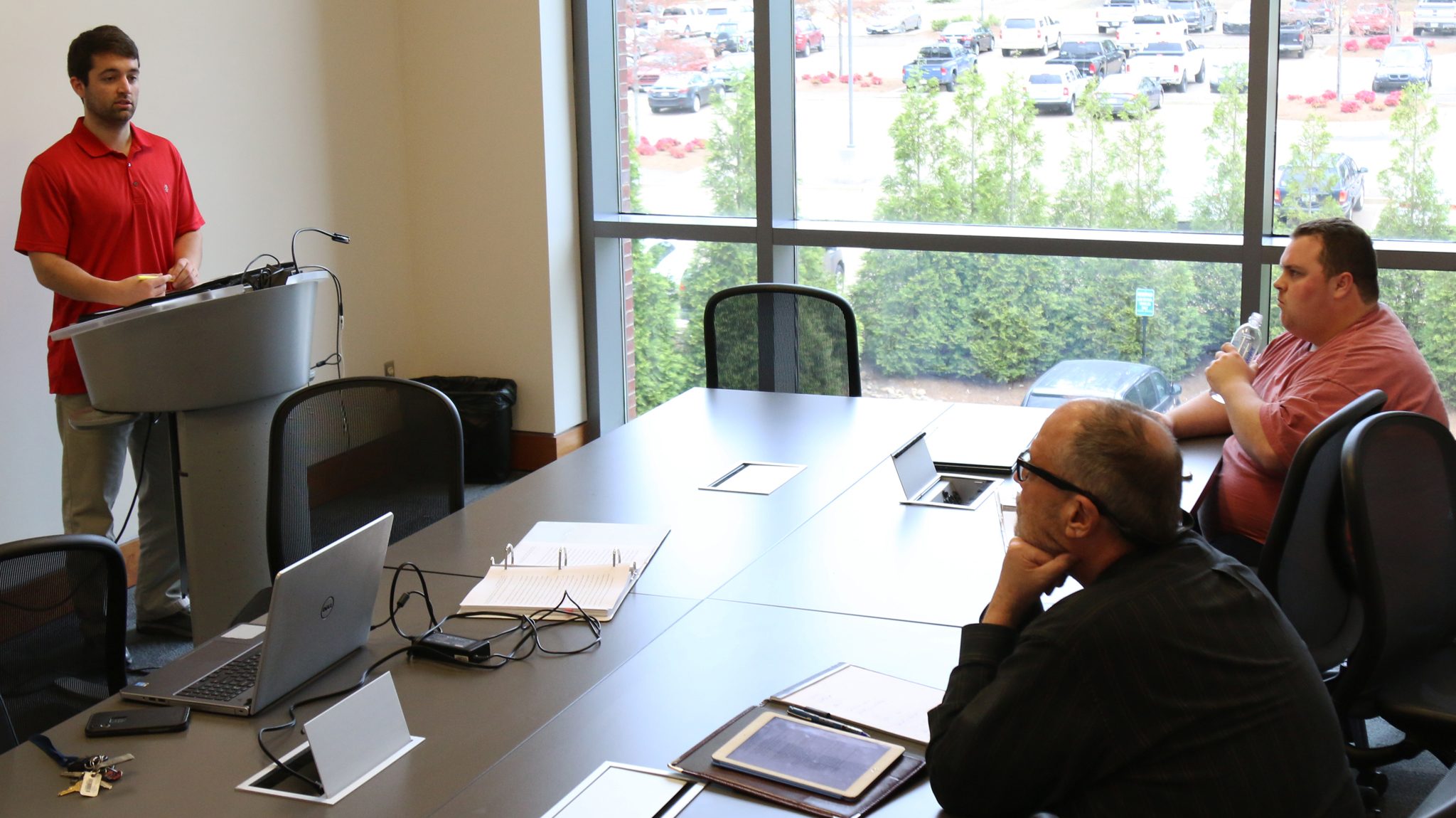
Anthony Liberato (left) and Hunter Robertson (right) practice their oral argument with UM law professor Phillip Broadhead. The students are set to deliver the argument Tuesday before the Mississippi Court of Appeals. Photo by Christina Steube/School of Law
OXFORD, Miss. – The Mississippi Court of Appeals convenes Tuesday (April 23) at the University of Mississippi School of Law to hear two oral arguments as part of its “Court on the Road” program.
The arguments, scheduled for 1:30 and 3 p.m., will be heard in the law school courtroom. Both proceedings are open to the public.
Third-year students Anthony Liberato, from Gulfport, and Hunter Robertson, of Ocean Springs, will deliver the first oral argument before the court. Both are members of the school’s Criminal Appeals Clinic. The case, Johnsey v. Mississippi, involves a burglary where the trial judge refused to instruct the jury on the lesser-included offense of trespassing.
“Our clinic allows students to gain practical experience working on and arguing a real case on behalf of the appellant,” said Phillip Broadhead, law professor and clinic director. “Preparing and delivering an argument before the Court of Appeals is a significant opportunity afforded to our students that most attorneys never experience during their entire careers in the practice of law.”
This will be the 36th oral argument delivered by students in the clinic since 2002.
“This is a rare opportunity for many lawyers, and to be able to do so while still in law school is something I will never forget,” Liberato said. “I look forward to advocating justice on my client’s behalf.”
Robertson is also excited for the opportunity.
“It is an honor to have the opportunity to participate in an oral argument before the Court of Appeals of Mississippi,” Robertson said. “I am grateful to be a part of the Criminal Appeals Clinic and to use this chance to pursue justice for our client.”
Jake Howard, legal director for the Mississippi office of the MacArthur Justice Center, will deliver the second oral argument. The case, Ely v. State, involves a juvenile who was sentence to life in prison without the possibility of parole.
“This is a very important topic in criminal law right now, and the courts are in flux on the procedural and substantive law on sending children to prison forever,” Broadhead said.
The “Court on the Road” program, established in 2005, is an opportunity for the general public, especially students, to learn more about how a court works.
Once the argument begins, no one is allowed to enter or leave the courtroom. Cellphones also are not permitted in the courtroom. A break is scheduled between the two arguments.
For more information about the Court of Appeals, visit https://courts.ms.gov/.